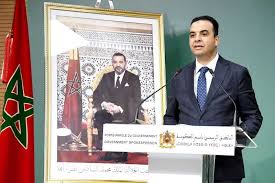
The Moroccan government has announced the formation of a specialized drafting commission to oversee revisions to the country’s Family Code. Government Spokesperson Mustapha Baitas shared the development on Thursday, highlighting the involvement of key ministries and the General Secretariat of the Government (SGG).
During a press briefing following the weekly Government Council meeting, Baitas explained that the Council decided to establish the commission due to the sensitive and complex nature of the Family Code. The commission includes representatives from the Ministry of Justice, the Ministry of Endowments and Islamic Affairs, the Ministry of Solidarity, Social Inclusion and Family, as well as the General Secretariat of the Government.
Baitas emphasized the SGG’s role in the commission, noting its expertise and the critical overlap between the Family Code revisions and other existing laws or legislative drafts currently under parliamentary review.
The drafting commission will comprise legal and judicial experts, Islamic scholars (ulema), and, if necessary, specialists from other fields whose expertise could contribute to the process.
A Top Government Priority
Baitas reiterated that the revision of the Family Code remains a high-priority issue, receiving close attention from the government since a December 26 communication meeting where the main proposed revisions were shared with the public. He explained that the government is now focused on drafting the legal text that will define the modalities, conditions, and procedures for implementing these revisions.
“It is premature to speculate on specific proposals, their potential impact, or challenges in implementation,” Baitas noted. “These questions depend on the existence of a finalized text that clearly frames the proposals.”
The government intends to continue engaging the public on the matter and remains committed to providing relevant updates as the drafting process progresses, in line with High Royal Instructions.
Collaborative Approach and Religious Considerations
In response to debates surrounding the revisions, Baitas reaffirmed the government’s alignment with the positions of political parties, labor unions, and civil society actors. He condemned efforts to undermine




